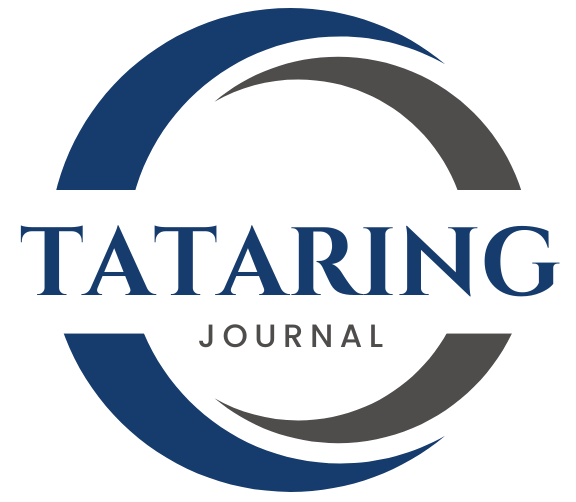Welcome to Jurnal Tataring
This journal was established to fulfill the output assignments of students in the English Literature Study Program. Due to the high enthusiasm of students writing articles, in December 2024 the level was raised to become an independent journal and independent website. Therefore, this journal is one of the choices for students, writers, and researchers to publish their journal articles so that they can be accessed anytime and anywhere.
This journal is an open-access journal that provides immediate, worldwide, barrier-free access to the full text of all published articles without charge readers or their institutions for access. Readers have the right to read, download, copy, distribute, print, search, or link to the full texts of all articles. This journal’s open philosophy is based on the principle that making research freely available to the public supports a greater global exchange of knowledge.


Peer Review Process
Every submitted article will be independently reviewed. Tataring applies blind review, where two anonymous reviewers will examine each article. The decision for publication, amendment, or rejection is based upon reports and recommendations. After being reviewed, there will be three kinds of editor decisions based on reviewers’ recommendation: 1) Accept submission with no revision; 2) Accept submission with revisions; or 3) Decline/reject submission.
Article Revision
The articles sent back to the authors for revision should be returned to the editor without delay (normally in two weeks). The revised article returned later than 20 days without notice will be declined and considered as new submissions. The revised article can be sent to the editorial through the online submission interface.
Retraction
The articles published in Tataring will be considered for retraction in the publication if: 1) they have clear evidence that the findings are unreliable, either as a result of misconduct (e.g., data fabrication) or honest error (e.g., miscalculation or experimental error); 2) the findings have previously been published elsewhere without proper crossreferencing, permission, or justification (i.e., cases of redundant publication); 3) it constitutes plagiarism; and/or 4) it reports unethical research. The mechanism of retraction follows the Retraction Guidelines of Committee on Publication Ethics (COPE).